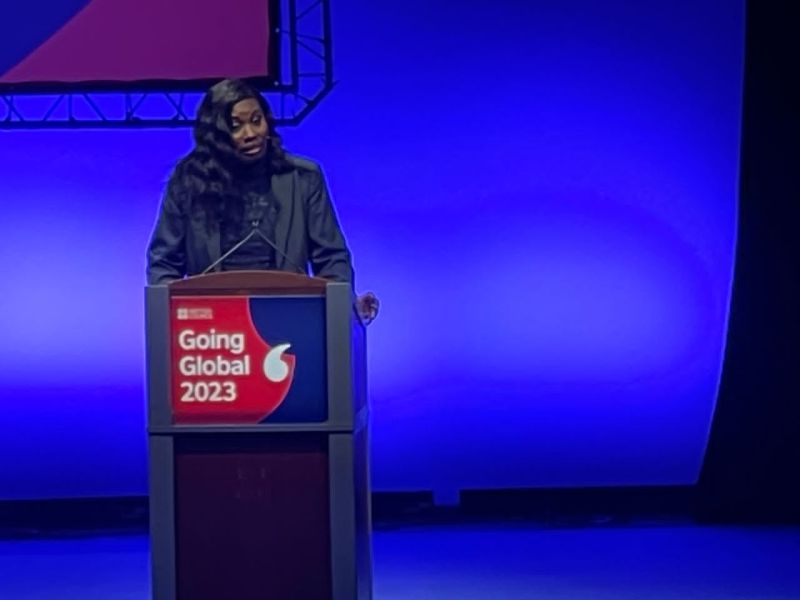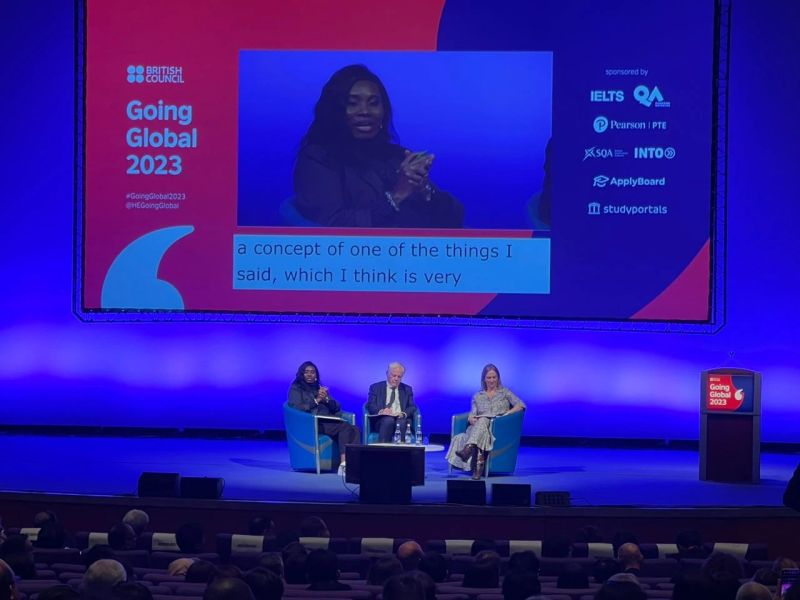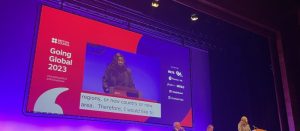
By Abiodun Atilola
It was a gathering of intellectuals at the “2023 Going Global” foreign Plenary session where the current Secretary to the Oyo State Government and the Pioneer Deputy Vice Chancellor, Research, Innovation and Strategic Partnerships, from the University of Ibadan, Professor Olanike Adeyemo among other international erudite scholars gathered to discuss on western education and the going global held at Edinburgh, Scotland recently.
The second female Secretary to the State Government in the history of Oyo State, Professor Olanike Adeyemo in her lecture titled “Internationalization: is a Model Equitable Achievable? Reiterated that the global higher education system is evolving, but not in a homogeneous way.
She said the equitable transnational education model is achievable but cannot be global, hinting that, challenges and opportunities co- exist in the transnational education landscape around the world.

“Each society is at different stages of development and hence has different areas requiring support, the awareness by exporting countries that transnational education cannot be monopolized hence offerings and agreement must be competitive”.
Professor Adeyemo alongside Professor Simon Marginson gave the keynote address at the opening plenary, they opined that partnership instead of treating transnational education like an exported product, symbolic partnership in terms of tangible and intangible benefits like involvement of host country professors to build capacity and ensure reciprocity.
The Secretary to the State Government added “Intentional regulation of partnerships and quality by the host country’s competent authorities, however, long-winding bureaucratic processes will be counter productive, cost effective and scholarship model that bridges the current social/class access to transnational in host countries.
It will interest you to know that professor Olanike Adeyemo is a professor of Veterinary Public Health and Preventive Medicine from the University of Ibadan.
She concluded at the conference that the transnational education system characterised by stiff competition for students by diverse actors from all regions of the world.

“Transnational education resources that meet the local social needs will be considered a desirable service offering instead of importation attributes such as competences in inter and cross cultural communication, international literacy, international consciousness, global awareness and global perspectives will be increasingly important in driving equitable transnational education partnerships”.
Professor Adeyemo said: I thank the British Council, especially, the amazing Adetomi Soyinka for inviting me to deliver my thoughts on “Internationalization: Is a globally Equitable Model Achievable?” at the opening Plenary session of “GoingGlobal2023” , Edinburgh, @HEGoingGlobal. I concluded that the equitable internationalization model is achievable, but it cannot be global. Each model has to be context adapted to achieve equity. Another driver of equitable internationalization is, intentional analyses of skill gaps abinitio, to ensure that partnership is geared towards meeting the country’s social and developmental needs. Nigeria was well represented with contingents led by the Honourable Minister of Education, Professor Tahir Mamman.
Interestingly, Bisi Oni is the Executive Director at Fund Quest | Driving Financial Growth commended Professor Adeyemo on her mind blowing lecture at the “2023 Going Global’ Plenary at the Edinburgh, Scotland.
Oni said “Thank you Olanike Adeyemo for your thoughts on this subject. The core of internationalization lies on domestic cultural, social and indigenous practices of citizenry.
This is critical for sustainability. This explains why most global developmental templates won’t work in all jurisdictions.
Nations, peoples and communities must devise, adopt and implement models that work within their localities while keeping the focus fixed on global goals.
Once again, thank you Professor Olanike Adeyemo for your presentation at the event.
